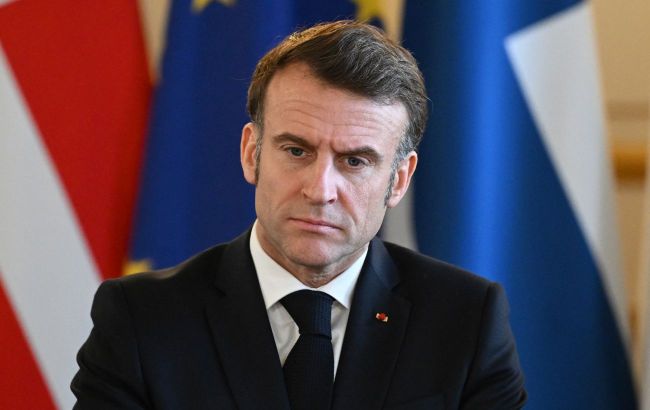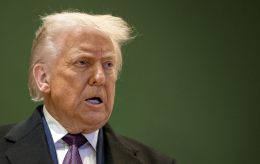French government resigns: Why it happened and will Macron call new elections
 Emmanuel Macron (photo: Getty Images)
Emmanuel Macron (photo: Getty Images)
The lower house of the French parliament, the National Assembly, has passed a vote of no confidence against the government led by François Bayrou. The decision was supported by 194 deputies out of 364 who participated in the vote, according to the parliamentary session broadcast.
Specifically, all opposition parties to Emmanuel Macron, from the far-left to the far-right, voted in favor of the government’s resignation.
François Bayrou must now submit his government’s resignation to the President, who will appoint a Prime Minister to form a new cabinet.
RBC-Ukraine explains why Bayrou’s government was dismissed, how the situation is likely to develop, and what options the French President has.
Long-term crisis
Last year, France held early parliamentary elections. President Emmanuel Macron announced the vote in hopes of curbing the rising popularity of the far-right party, the National Rally. Following the elections, the French Parliament was split into three main groups - the National Rally, the leftist bloc New Popular Front, and the presidential coalition, which mainly brought together centrist deputies.
As a result, none of the three political camps holds a majority in the National Assembly. Over just more than a year, this has already led to the collapse of a second cabinet, as they lacked sufficient support among deputies.
Although the president holds significant powers in France, the government is equally important for the functioning of the state, particularly in economic and financial matters. In recent years, chronic budget deficits have been a persistent problem for France, with most funds borrowed to cover the shortfall.
Bayrou’s government tried to at least curb the growth of public debt. To achieve this, the budget for the next year included a sharp spending cut of €43.8 billion.
The plan was to implement this through freezing the indexation of social spending and pensions, as well as limiting expenditures on state health insurance. Additionally, the government proposed raising taxes on the wealthiest French citizens. However, there are not enough votes in the National Assembly to pass these measures.
In such cases, France’s Constitution provides a special mechanism, procedure 49.3, which allows, in exceptional circumstances, laws, including the budget law, to be passed without a parliamentary vote. However, using this mechanism is automatically linked to a confidence question for the government.
What’s next
The opposition in the National Assembly has called for the dissolution of Parliament, as this would give them an opportunity to strengthen their positions. Some politicians have even suggested that President Macron should resign. However, the head of state has publicly rejected these initiatives.
Currently, President Macron will need to appoint a new Prime Minister who could gain support from centrists and part of the opposition, said Oksana Mitrofanova, a lecturer and research fellow at France’s Jean Moulin Lyon 3 University, in an interview with RBC-Ukraine.
"This Prime Minister could come from the center-left, that is, from the Socialist Party. In that case, this left-leaning Prime Minister would likely be supported by the Socialist Party itself and by centrist parties that support Macron. Then it is quite possible that in the new budget, he would raise taxes on wealthy French citizens," Mitrofanova said.
According to her, another scenario involves appointing a Prime Minister with center-right views. However, in that case, the new head of government would lack support in Parliament, which could quickly lead to their resignation.
Regarding support for Ukraine, the expert said there is currently no cause for concern.
"The President actually manages foreign policy, and Macron remains in that role. If a new Prime Minister comes from the Socialist Party, that party also supports Ukraine. So, he would work in harmony with the President on the Ukrainian issue," she said.
Radical changes regarding Ukraine would only be possible if parties that do not support Ukraine, such as the National Rally or France Unbowed, came to power, but currently, there is no basis for this, Mitrofanova noted.
Among possible candidates for Prime Minister mentioned in French media are Sébastien Lecornu, the current Defense Minister; Gérald Darmanin, former Interior Minister and current Justice Minister; and Catherine Vautrin, Minister of Labor. However, this is far from an exhaustive list, and the final decision rests with Macron.

